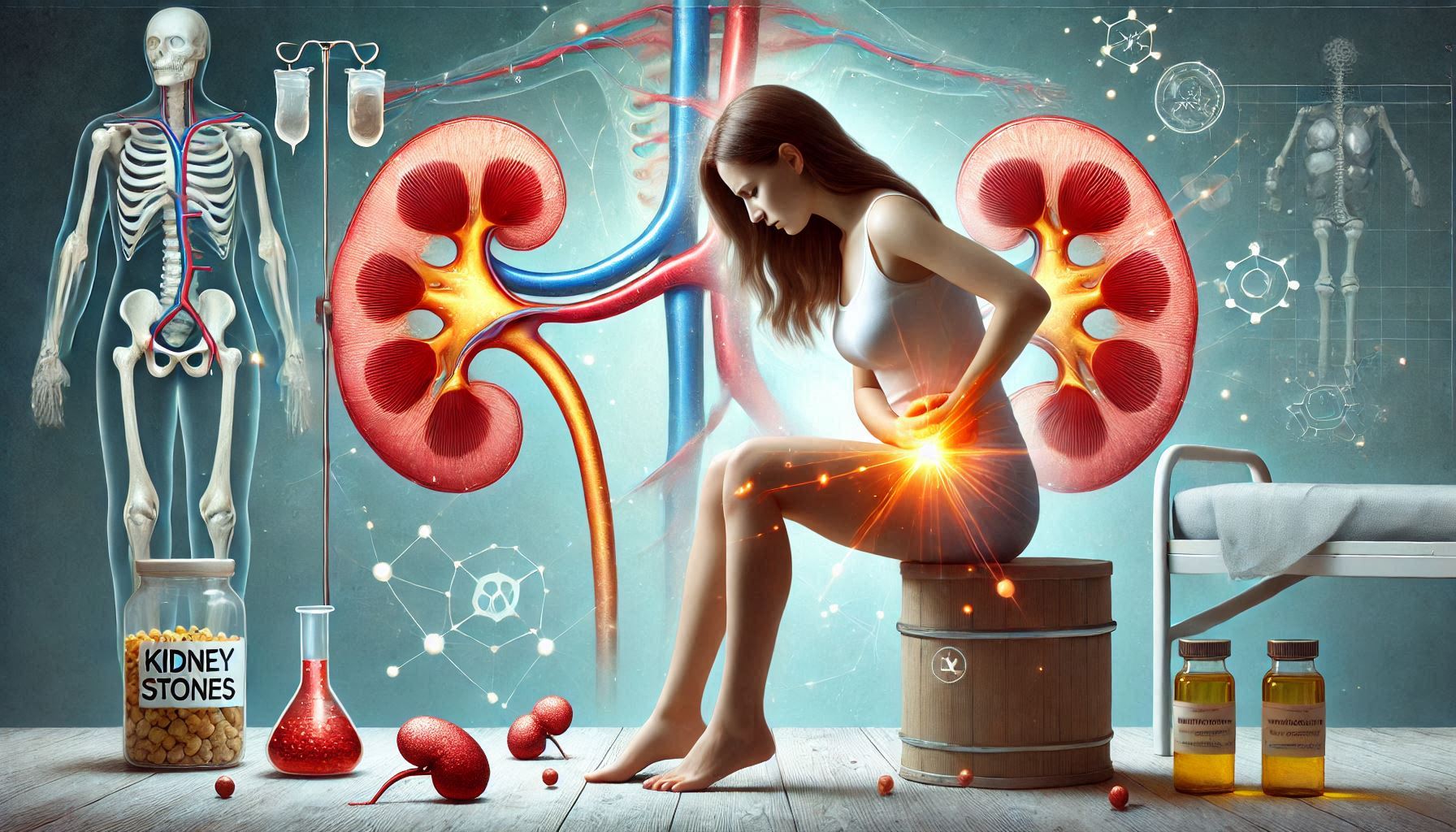Silent Killers: What Doctors Wish You Knew About Kidney Stones and How They Can Be Fatal Author: ItHurts.com A Comprehensive Talk on Prevention, Causes, and Long-Lasting Relief Understanding the Basics: Kidney stones are often dismissed as a painful inconvenience, but they have the potential to do much more harm than most people realize. In rare but severe cases, they can even lead to life-threatening complications. What causes such outcomes? Why do kidney stones, a condition affecting nearly 1 in 10 people, sometimes escalate into something deadly? Let’s dive into what doctors wish everyone knew about the hidden dangers of kidney stones. What Are Kidney Stones? Kidney stones are solid masses formed in the kidneys from crystals in the urine. These crystals can consist of calcium, oxalate, uric acid, or other substances. Stones can vary greatly in size—from as small as a grain of sand to as large as a golf ball. Small stones often pass without issue, but larger stones can become lodged in the urinary tract, leading to a cascade of problems. Most kidney stones cause intense pain but are generally not life-threatening. However, there are scenarios where complications can arise, putting patients at serious risk. How Kidney Stones Can Become Fatal While kidney stones themselves don’t kill, complications stemming from them can. Here’s how: 1. Urinary Tract Infections (UTIs) and Sepsis One of the most dangerous complications of kidney stones is infection. If a stone obstructs the urinary tract, it can trap bacteria inside the urinary system, leading to a urinary tract infection (UTI). Left untreated, a UTI can escalate to sepsis, a life-threatening systemic infection. Why It’s Dangerous: When sepsis occurs, the body’s immune system goes into overdrive, attacking its own tissues and organs. This can lead to septic shock, organ failure, and death if not treated immediately. Doctor’s Insight: “Any patient presenting with a fever, chills, or severe malaise alongside kidney stone symptoms should be treated as an emergency,” says Dr. Alice Romero, a urologist. “These are red flags for an infection that could quickly escalate to sepsis.” 2. Blockage of Urine Flow Large stones can completely block the flow of urine, causing pressure to build up in the kidneys. This condition, known as hydronephrosis, can lead to kidney damage or failure. Why It’s Dangerous: When urine backs up, the kidney swells and sustains tissue damage. Over time, this can cause permanent loss of kidney function, leading to the need for dialysis or a kidney transplant. Doctor’s Insight: “Kidney stones don’t just cause pain—they can compromise the organ itself,” explains Dr. Mark Pearson, a nephrologist. “A completely obstructed kidney is a medical emergency. If untreated, it can lead to kidney failure and even death.” 3. Bleeding and Tissue Damage Sharp, jagged stones can scrape the lining of the urinary tract, causing bleeding. In severe cases, this can lead to significant blood loss, especially if the person has a clotting disorder or takes blood thinners. Why It’s Dangerous: Bleeding may indicate tissue damage or even the formation of additional stones. Prolonged or heavy bleeding can lead to anemia or shock, particularly if other complications arise simultaneously. Who Is at Risk of Complications? Certain groups of people are at higher risk of life-threatening complications from kidney stones. These include: People with weakened immune systems: Individuals undergoing chemotherapy, organ transplant recipients, and people with autoimmune diseases are more vulnerable to infections. Patients with chronic conditions: Diabetes and kidney disease increase the likelihood of severe infections or kidney failure. Delayed treatment seekers: Ignoring severe symptoms such as fever, nausea, or extreme pain can lead to preventable complications. Warning Signs That Should Never Be Ignored Doctors emphasize that certain symptoms warrant immediate medical attention. These include: Severe pain in the back or side that doesn’t improve with over-the-counter painkillers. High fever and chills, which may indicate an infection. Nausea and vomiting, especially if coupled with pain. Difficulty urinating or a complete inability to pass urine. Blood in the urine, which could signal significant damage to the urinary tract. Ignoring these signs can lead to severe complications or even death. How Are These Complications Treated? Treating life-threatening complications from kidney stones often requires urgent medical intervention. Here’s how doctors address them: Sepsis Treatment involves intravenous antibiotics to control the infection and sometimes emergency surgery to remove the obstructing stone. Patients may also need fluids, medications to support blood pressure, and intensive care if organ failure occurs. Obstruction and Kidney Damage In severe blockages, doctors may place a stent or a nephrostomy tube to allow urine to flow out of the body until the stone is removed. Delays in treatment increase the risk of kidney failure. Bleeding and Tissue Damage Bleeding complications may require blood transfusions, stone removal, or cauterization of the damaged tissue. Patients on blood thinners are closely monitored. Prevention: The Best Defense Against Fatal Outcomes Preventing kidney stones and their complications starts with lifestyle changes and awareness. Doctors recommend the following: 1. Stay Hydrated Dehydration is one of the most common causes of kidney stones. Drinking plenty of water dilutes the substances in urine that lead to stone formation. Tip: Aim for at least 8-10 glasses of water daily, or more if you’re active or live in a hot climate. 2. Monitor Your Diet Certain foods can increase the likelihood of stone formation. Limit your intake of: Foods high in oxalates, such as spinach, nuts, and chocolate. High-sodium foods, which promote calcium excretion in urine. Excessive animal protein, which can increase uric acid levels. Why Early Detection Saves Lives Doctors universally agree that early detection and treatment are crucial in preventing kidney stones from becoming deadly. Advanced imaging techniques, such as CT scans or ultrasounds, allow for accurate diagnosis and treatment planning. Proactive Care Tip: Regular checkups and urine tests can detect underlying conditions that may predispose you to stones. Real Stories: The Cost of Delayed Treatment Dr. Romero recalls a case where a patient ignored her symptoms for weeks. “By the time she came to the ER,

